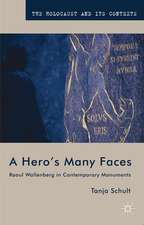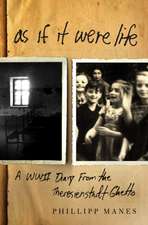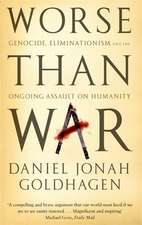Rwanda 1994: The Myth of the Akazu Genocide Conspiracy and its Consequences: Rethinking Political Violence
Autor Barrie Collinsen Limba Engleză Hardback – 22 aug 2014
| Toate formatele și edițiile | Preț | Express |
|---|---|---|
| Paperback (1) | 384.70 lei 6-8 săpt. | |
| Palgrave Macmillan UK – 2014 | 384.70 lei 6-8 săpt. | |
| Hardback (1) | 392.60 lei 6-8 săpt. | |
| Palgrave Macmillan UK – 22 aug 2014 | 392.60 lei 6-8 săpt. |
Din seria Rethinking Political Violence
-
 Preț: 392.37 lei
Preț: 392.37 lei -
 Preț: 391.61 lei
Preț: 391.61 lei -
 Preț: 386.81 lei
Preț: 386.81 lei - 15%
 Preț: 643.00 lei
Preț: 643.00 lei -
 Preț: 390.63 lei
Preț: 390.63 lei -
 Preț: 391.61 lei
Preț: 391.61 lei - 18%
 Preț: 735.07 lei
Preț: 735.07 lei - 15%
 Preț: 641.71 lei
Preț: 641.71 lei -
 Preț: 387.75 lei
Preț: 387.75 lei -
 Preț: 388.13 lei
Preț: 388.13 lei - 15%
 Preț: 698.15 lei
Preț: 698.15 lei -
 Preț: 384.86 lei
Preț: 384.86 lei - 15%
 Preț: 638.89 lei
Preț: 638.89 lei - 18%
 Preț: 895.58 lei
Preț: 895.58 lei - 18%
 Preț: 780.19 lei
Preț: 780.19 lei - 18%
 Preț: 724.94 lei
Preț: 724.94 lei -
 Preț: 388.52 lei
Preț: 388.52 lei - 18%
 Preț: 728.11 lei
Preț: 728.11 lei - 15%
 Preț: 644.95 lei
Preț: 644.95 lei - 18%
 Preț: 781.94 lei
Preț: 781.94 lei - 15%
 Preț: 584.76 lei
Preț: 584.76 lei - 15%
 Preț: 589.65 lei
Preț: 589.65 lei - 18%
 Preț: 947.18 lei
Preț: 947.18 lei - 18%
 Preț: 725.92 lei
Preț: 725.92 lei - 18%
 Preț: 775.65 lei
Preț: 775.65 lei -
 Preț: 385.84 lei
Preț: 385.84 lei -
 Preț: 390.46 lei
Preț: 390.46 lei -
 Preț: 391.40 lei
Preț: 391.40 lei
Preț: 392.60 lei
Nou
Puncte Express: 589
Preț estimativ în valută:
75.12€ • 78.65$ • 62.16£
75.12€ • 78.65$ • 62.16£
Carte tipărită la comandă
Livrare economică 05-19 aprilie
Preluare comenzi: 021 569.72.76
Specificații
ISBN-13: 9781137022318
ISBN-10: 1137022310
Pagini: 272
Ilustrații: XIV, 272 p.
Dimensiuni: 140 x 216 x 23 mm
Greutate: 0.52 kg
Ediția:2014
Editura: Palgrave Macmillan UK
Colecția Palgrave Macmillan
Seria Rethinking Political Violence
Locul publicării:London, United Kingdom
ISBN-10: 1137022310
Pagini: 272
Ilustrații: XIV, 272 p.
Dimensiuni: 140 x 216 x 23 mm
Greutate: 0.52 kg
Ediția:2014
Editura: Palgrave Macmillan UK
Colecția Palgrave Macmillan
Seria Rethinking Political Violence
Locul publicării:London, United Kingdom
Cuprins
Introduction 1. Apocalypse 1994 2. The Kingdom, the Colony and the Republics: Ethnicity in Perspective 3. The RPF's War 4. The Myth of the Akazu Genocide Conspiracy 5. Hate Speech, the Audience and Mass Killings 6. Genocide and Humanitarian Intervention in the 20th Century 7. Consequences
Recenzii
'Should we let the contextual facts get in the way of a powerful universal morality tale ofgenocide and intervention? Collins is brave enough to think that we should. He makes a compelling case that moral certainties make for poor and reductionist historical, political and legal judgements. This book is going to disturb and unsettle anyone who thinks that genocide is an abstract concept: 'simply' a crime made 'to order' by criminal masterminds and their docile subjects. This is a meticulous study of the genocide which at the same time treats the people of Rwanda with the dignity and respect they deserve.' David Chandler, Professor of International Relations, University of Westminster, UK
'The standard account of the Rwandan 'genocide' of 1994 rests on a conspiracy theory. As Collins demonstrates in his book, the evidence supporting the theory is no better than the evidence refuting it. The United Nations, through its creation of the International Criminal Tribunal for Rwanda, has inadvertently lent its weight to the standard account. Why would
a UN Tribunal endorse a myth? No further conspiracy theory is required to explain the ICTR's blinkered view of events in the 1994 Rwandan war. The ICTR fell into the rut of victor's justice, only ever prosecuting the losing side in the 1994 war. The winning side, which since that year has ruled Rwanda, was left alone. Almost twenty years after its establishment the Tribunal is still in the same rut. The lesson for international justice surely is that atrocities should be prosecuted with an open mind and without compromise.' Dr Alexander Zahar, former legal officer at the ICTR and ICTY and co-author of 'International Criminal Law: A Critical Introduction' (2008)
'The standard account of the Rwandan 'genocide' of 1994 rests on a conspiracy theory. As Collins demonstrates in his book, the evidence supporting the theory is no better than the evidence refuting it. The United Nations, through its creation of the International Criminal Tribunal for Rwanda, has inadvertently lent its weight to the standard account. Why would
a UN Tribunal endorse a myth? No further conspiracy theory is required to explain the ICTR's blinkered view of events in the 1994 Rwandan war. The ICTR fell into the rut of victor's justice, only ever prosecuting the losing side in the 1994 war. The winning side, which since that year has ruled Rwanda, was left alone. Almost twenty years after its establishment the Tribunal is still in the same rut. The lesson for international justice surely is that atrocities should be prosecuted with an open mind and without compromise.' Dr Alexander Zahar, former legal officer at the ICTR and ICTY and co-author of 'International Criminal Law: A Critical Introduction' (2008)
Notă biografică
Barrie Collins is an independent researcher and holds a PhD in Politics from The School of Oriental and African Studies (SOAS), UK.















